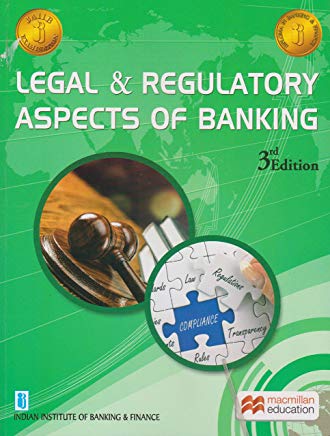JAIIB AFB Unit 20 - Banking Operations (Year: 2019)
Some basic functions performed by the banks are discussed below.
1. Accepting Deposits
(i) Demand Deposits – withdrawable on demand
(ii) Current Account
(iii) Savings Deposits
(iv) Term Deposits – Received for a fixed period
2. Granting Loans and Advances
(i) Overdraft
(ii) Cash Credit:
(iii) Discounting of Bills
(iv) Loans and Advances
Other Functions are :
- Remittance of Funds
- Collection and Payment of Credit Instruments
- Execution of Standing Orders
- Purchasing and Sale of Securities
- Collection of Dividends on Shares
- Income Tax Consultancy
- Acting as Trustee and Executor
- Acting as Representative and Correspondent
- Locker Facility
- Traveller's Cheques
- Letter of Credit
- Collection of Statistics
- Underwriting Securities
- Gift Cheques
- Acting as Referee
- Foreign Exchange Business
Banks are also permitted to perform following Para Banking Activities :
- Mutual Fund Business
- Money Market Mutual Funds
- Cheque Writing Facility for Investors of Mutual Funds/Money Market Mutual Funds
- Primary Dealership Business
- Underwriting Activities
- Equipment Leasing, Hire Purchase Business and Factoring Services
- Investment in Venture Capital Funds
- Sponsors to Infrastructure Debt Funds
- Insurance Business
- Pension Fund Management
- Referral Services
- Trading on/Membership of SEBI approved Stock Exchanges
- Portfolio Management Services
Front Office and Back Office of a Bank
A bank front office is the network of bank branches located in its service area. The standard definition of a front office is all of the departments that interface with the public. As service providers, banks are defined by the effectiveness of their front office operations. A reputation for outstanding customer service can drive sales of financial products and provide a competitive advantage.
The Head Office and Regional/Zonal Offices which do not conduct any banking activities directly with the clients are called Back Offices.
Outsourcing of Services by Banks
'Outsourcing' may be defined as a bank's use of a third party (either an affiliated entity within a corporate group or an entity that is external to the corporate group) to perform activities on a continuing basis that would normally be undertaken by the bank itself, now or in the future.
Activities that should not be outsourced
Banks cannot outsource core management functions like corporate planning, organisation, management and control and decision-making functions like determining compliance with KYC norms for opening deposit accounts, according sanction for loans and management of investment portfolio.
The key risks in outsourcing that need to be looked into by the banks are: -
(a) Strategic Risk – The service provider may conduct business on its own behalf, which is inconsistent with the overall strategic goals of the bank
(b) Reputation Risk – Poor service from the service provider, its customer interaction not being consistent with the overall standards of the bank
(c) Compliance Risk – Privacy, consumer and prudential laws not adequately complied with
(d) Operational Risk – Arising due to technology failure, fraud, error, inadequate financial capacity to fulfil obligations and/or provide remedies
(e) Exit Strategy Risk – This could arise from over–reliance on one firm, the loss of relevant skills in the bank itself preventing it from bringing the activity back in-house and contracts entered into wherein speedy exits would be prohibitively expensive
(f) Counterparty Risk – Due to inappropriate underwriting or credit assessments
(g) Country Risk – Due to the political, social or legal climate creating added risk
(h) Contractual risk – arising from whether or not the bank has the ability to enforce the contract
I) Concentration and Systemic Risk – Due to lack of control of individual banks over a service provider, more so when overall banking industry has considerable exposure to one service provider.
Banking Operations Manual
A banking operations manual helps you get the very best out of each employee. It also helps to ensure that each one knows not only their duties but also the policies, products and how to do things the right way.
A manual is all you will need to train your people effectively. It is cost effective and the items in it will be easier to monitor for compliance. Using a manual to train the frontline will teach them everything they need to know to sell the products and services offered by your bank.
The manual will also have detailed instructions on how to enter information into the system and if they should forget something they can always count on it to show them how to get back on track. Manuals are great because they are easy to adapt and to amend if needed. A banking manual should include all the policies that are to be adhered to as well as the procedures that are needed to remain in compliance with all the laws, rules and regulations that govern banking institutions.
JAIIB Study Material
| JAIIB Paper 1 Study Material |
| JAIIB Paper 2 Study Material |
| JAIIB Paper 3 Study Material |


